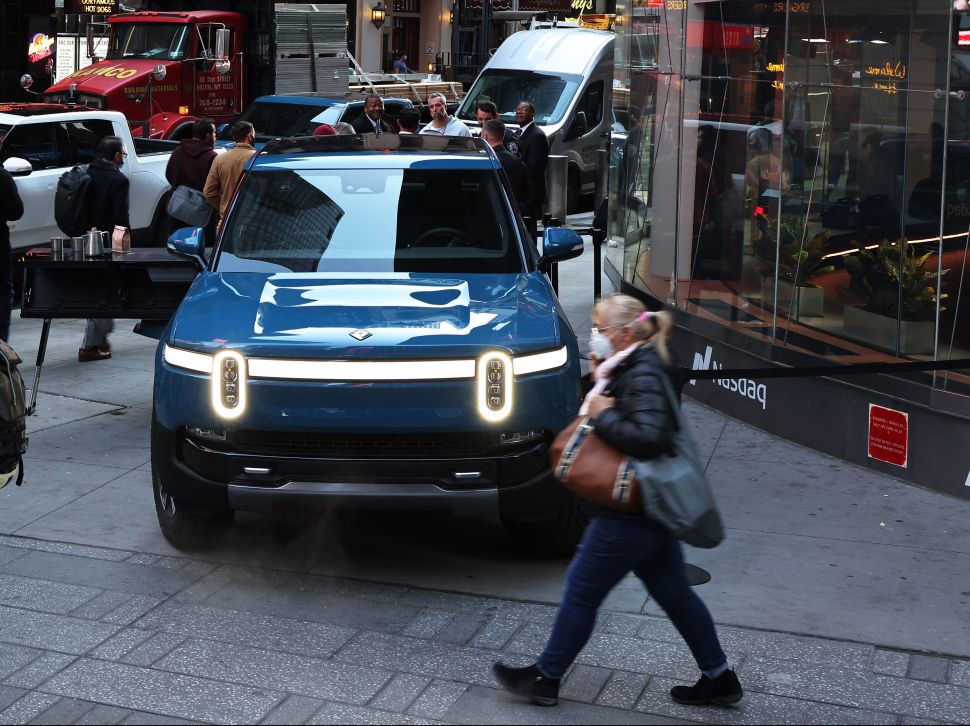Rivian electric truck is displayed in front of the Nasdaq MarketSite building in Times Square in New York City.” width=”970″ height=”727″ data-caption=’Rivian develops most of its software in-house. <span class=”lazyload media-credit”>Michael M. Santiago/Getty Images</span>’>
Rivian might be best known for its sleek, luxurious electric vehicles, but but the Irvine, Calif.-based company is also pushing ahead in autonomous driving and A.I. innovation. In a sign to further expand its A.I. ambitions, Rivian has appointed Aidan Gomez, CEO of the startup Cohere, to its board.
“In this pivotal moment, Rivian is the best positioned to become the global leader in automotive and manufacturing A.I., and I am eager to support the company in realizing that,” Gomez said in a statement. His stint on the board, which also includes former executives of Patagonia and Waymo, will run through 2026, according to a regulatory filing.
Gomez is an A.I. expert who formerly worked at Google under the renowned A.I. researcher Geoffrey Hinton and notably co-authored the seminal paper, “Attention is All You Need,” which introduced transformer-based models. In 2019, he co-founded Cohere with fellow ex-Google researchers Nick Frosst and Ivan Zhang. The startup builds custom A.I. models for enterprise clients and was most recently valued at $5.5 billion.
Gomez’s leadership and expertise in A.I. will aid Rivian as it integrates “new, cutting-edge technologies” into its products and services, said Rivian CEO RJ Scaringe in a statement. In addition to manufacturing the R1T pickup and R1S SUV, Rivian develops most of its software in-house, which is also used by other automakers. Last year, it signed a $5.8 billion deal with Volkswagen (VWAPY) Group to provide software and next-generation electrical architecture for VW’s electric vehicles.
Recent Rivian models feature the A.I.-driven Rivian Autonomy Platform, which enables autonomous driving capabilities via software updates. Earlier this year, the company released an update allowing drivers to remove their hands from the wheel while on highways.
Future updates will expand these capabilities to allow Rivian customers to decide whether they want to drive or have their cars drive themselves. Speaking at SXSW last month, Scaringe said about 20 percent of miles driven in Rivians are currently autonomous, adding, “It’s not going to be long before we go from 20 percent to 60, 70, 80 percent.”
Beyond autonomy and large language models, Gomez will also advise on A.I.-powered manufacturing, he said in a LinkedIn post. Rivian already uses A.I. in its production lines to improve efficiency, but Scaringe noted the technology will eventually help lower costs and scale production. “These are just the beginnings of how A.I. is going to really change the way we run our businesses,” he said at SXSW.

